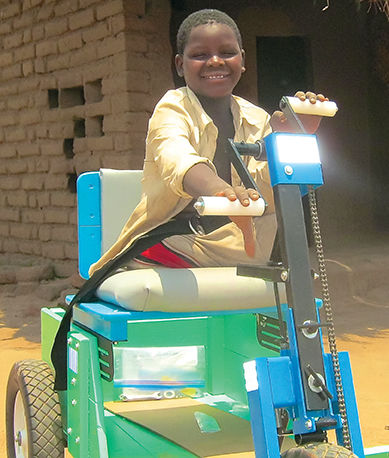Program builds corporate and technical skills
When you think of a manufacturing company or technical enterprise, you may think of engineers, scientists, and designers, but these companies are businesses, too, and they benefit from executives who not only understand the business side of things, but also the products and services their companies deliver.
It’s a niche that Penn State Behrend fills with its Interdisciplinary Business with Engineering Studies (IBE) program, which is administered by the Black School of Business and the School of Engineering.
IBE is one of only a handful of undergraduate business-engineering programs nationwide and the only one within Penn State. In addition to core coursework in business, engineering, engineering mathematics, and science, IBE majors choose a focus module to build knowledge and skill in a targeted sector.
Like all engineering students, IBE majors must complete a year-long senior capstone project, typically for a real company. These are often concept projects requiring out-of-the-box thinking and research time that busy companies would like to undertake, but just don’t have the resources to devote to exploring.
Such was the case for Kent International, a bicycle design and manufacturing company headquartered in New Jersey. Arnold Kamler, chairman and CEO of Kent, learned about Behrend’s IBE program after meeting Dr. Diane Parente, professor of management and IBE program chair, at a manufacturing and technology conference in 2016.
“Dr. Parente asked if I’d be interested in working with Behrend students on an IBE capstone project,” Kamler said. “I’ve done several projects with Behrend IBE students since then.”
The latest involved Kent’s philanthropic interest in helping to build a better tricycle for mobility- challenged users in underdeveloped countries. They have been successfully working with a group called Amtryke who introduced the company to Mobility Worldwide.
“When you watch the videos on the Mobility Worldwide website, you can see that mobility given to these physically challenged individuals is life changing,” Kamler said. “Suddenly, they are transformed from feeling like a burden on their community to being self-sufficient. Many of them develop their own rudimentary businesses. Of course, Kent Bikes is a for-profit business, but when you see these kind of results, making money becomes a by-product.”
Building a better mobility tricycle was a task with unique challenges. The tricycle needed to be sturdy and operable over uneven terrain, and it had to use basic materials, such as wood and steel that could be easily assembled and repaired with rudimentary skills and tools. It also needed to be lighter than 110 pounds and it needed to be weatherproof without using alloy materials.
“The goal for Penn State Behrend’s students was to design a tricycle that was better than the current model Mobility Worldwide has,” Kamler said. “Using parts that are very low maintenance and easily assembled and disassembled was key.”
Before they graduated in May, IBE majors Jeremy Brosius, Nick McKee, and Olivia Pupura developed three concepts for a tricycle design that emphasized durability and low maintenance. Further research is needed to identify materials and enhancements to determine the best overall design.
“I have two employees at our factory in South Carolina who are working on this several hours every day,” Kamler said. “We are confident we can come up with a better product, and we will be able to save Mobility Worldwide a lot of money because of our buying power and economies of scale.”
